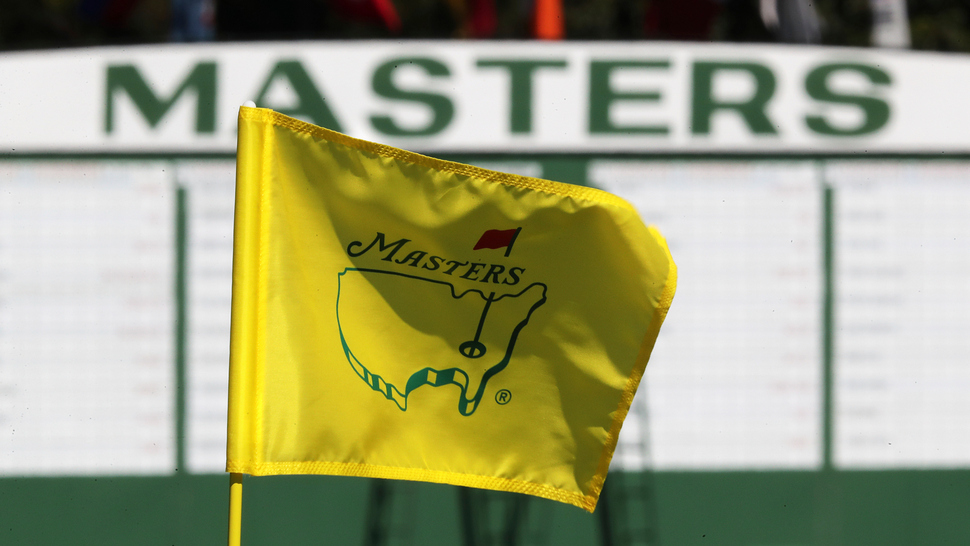Part 1
Hoch’s horror / 1989 Masters
While attention is often centered on elite players at Augusta there are times when the push for the green jacket comes from others. Scott Hoch came to the PGA TOUR after a quality golf career at Wake Forest University including being runner-up in the 1978 U.S. Amateur.
The North-Carolina born Hoch would win eleven times on the PGA TOUR but his failure at the 1989 Masters is forever etched in stone.
On a rainy final round Hoch had assumed the lead by the 5th and maintained it until a short missed short par putt at the penultimate hole dropped him into a tie for the lead. Hoch would also miss a birdie putt at the 18th and have him enter a playoff with Nick Faldo.
The 10th hole served as the first playoff hole and Hoch smartly played his approach to 25 feet before lagging his birdie putt to two feet. Faldo had erred with his approach into the greenside bunker and then after hitting out to 15 feet missed his par putt.
All Hoch needed to do was make the two-foot putt and the green jacket was his.
He missed.
Faldo would make birdie at the par-4 11th and become England’s first major winner.
Re-watching the hapless Hoch horror even years later is still cringing to watch.
Floyd’s failure / 1990 Masters
The career of Ray Floyd is rightly honored for the array of accomplishments he achieved during the rigors of elite level competition.
Floyd’s first major came at the 1976 Masters where he tied the 72-hole scoring mark of 271. Floyd would go on to add three other major titles – capped off by his late career defining win at the 1986 U.S. Open at Shinnecock Hills.
His career continued to flourish and his quality play was on full display at the 1990 Masters. The 48-year-old secured the solo lead after the second and third rounds.
On the final round Floyd held a lead of three shots through the 14th. However, a sloppy pulled left approach from 130 yards to the 17th resulted in a bogey. Floyd was fortunate in securing a playoff position after bunkering his approach at the 18th and escaping with a par.
But his good fortune turned to heartbreak on the second playoff hole when he inexplicably pulled his 7-iron approach at the par-4 11th into the adjoining pond that guards the green.
The magnitude of that error was not lost on Floyd and his words afterwards encapsulated that disappointment.
“This is the most devastating thing that’s ever happened to me in my career. I’ve had a lot of losses, but nothing like this.”
McIlroy’s meltdown / 2011 Masters
The career of Rory McIlroy has ascended to great heights and his journey clearly has not ended. Winner of four major titles, the talented Northern Irishman seeks to add his name as Masters champion this spring and join the most elite of clubs as just the sixth golfer to have won the career grand slam.
When the then 21-year-old McIlroy came to play in his third Masters in 2011 he stormed out of the gates with a seven-under-par 65 and sole command of the lead. After 54 holes the margin had grown to four.
As McIlroy stepped onto the 10th tee his margin had shrunk to a single shot. His tee shot was hooked badly at the downhill dog-leg left hole and settled near the adjoining cabins situated far left of the hole.
When all was said and done Rory would see his lead completely evaporated with a score of 7 on the hole. He would finish the round with a score of 80 — the highest by a professional after leading the event after 54 holes.
The good news for McIlroy was that just two months later he would vindicate himself with a record four-round total of 268 total and an impressive eight-shot winning margin at the U.S. Open.
McIlroy learned much from his failure at the 2011 Masters but his overall major win total remains at four since 2014. Winning this year at Augusta to join the career Grand Slam club would be a fitting touch but if that should never happen, he can always look back at 2011 and wonder what might have been.
Spieth’s splash at the 12th / 2016 Masters
After a superlative 2015 season in which he won two majors (Masters and U.S. Open) and nearly added the others (T4 in The Open and runner-up in the PGA Championship) – Spieth moved into 2016 with a head of considerable steam.
When arriving at Augusta, Spieth showed he had a keen desire to join Nick Faldo and Tiger Woods in successfully defending his title. Spieth entered the back nine with a commanding five-stroke edge but after back-to-back bogies at the 10th and 11th, he did what no one thought remotely possible.
Dunking two balls in succession into Rae’s Creek and eventually finishing the hole with a quadruple bogey 7 – his lead was permanently eviscerated. Spieth limped home for a shared runner-up position losing to Englishman Danny Willet by three shots.
Spieth did capture The Open Championship in 2017 and at 30 years of age still has time to gather more trophy hardware. But one can only wonder the next time Spieth is in serious contention at Augusta if any of the painful memories will resurface once he reaches Amen Corner.
How Greg sunk the Shark / 1996 Masters
Only one person makes the list twice – Greg Norman. A sad reality but a necessary inclusion. The Aussie played stellar golf for 54 holes in 1996 and commanded a six-shot lead over his nearest rival Nick Faldo with one round to play.
Greg tied the course record in the first round with a 63 and was once again seeking to become Australia’s first green jacket winner.
The tentativeness of Norman’s play was evident from the start of his final round. The seeming unerring confident swagger was no longer present and the drip-by-drip leakage was highlighted by his failed second shot into the 9th. Unable to get his approach to the proper section of the green Norman finished the front side with a crestfallen bogey. The Shark had once again harpooned himself and it was only worsened by consecutive bogies at 10 and 11. He then saw his lead lost forever with a splashed approach at the 12th.
To his credit Norman did not shy away from the tough questions that followed the round. However, when the assessment of his prodigious talents is analyzed, one has to wonder how a green jacket resting comfortably on his shoulders would have looked.
Norman had numerous opportunities to completely change the narrative and given his immense golfing talents – 331 weeks ranked as the world number-one-player — his collective failures at The Masters remain among golf’s most bewildering puzzles.

